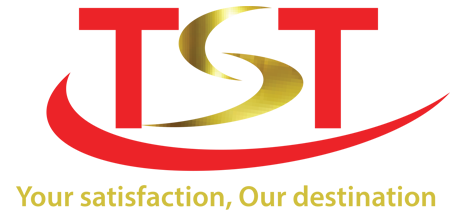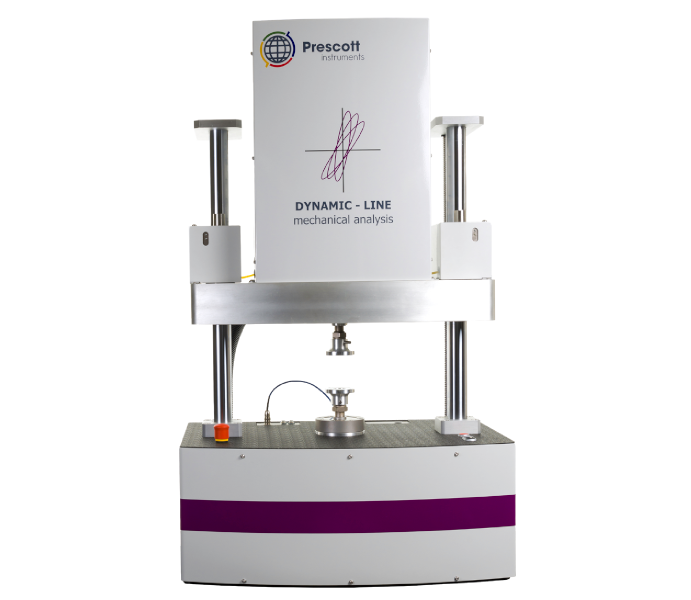Perfect for a modern laboratory, this instrument covers a wide range of static, dynamic and fatigue testing applications, making it an ideal instrument for laboratory applications, quality control and research & development.
Non-Linear Material Properties
The application of oscillatory forces enables material effects to be characterised beyond the linear regime. Stiffness, elastic modulus and viscosity can all be expressed as complex quantities that incorporate non-linear behaviours. The reaction of the sample as a function of both amplitude and frequency can be used to build a model of material properties that include both physical and chemical characteristics.
![]()
Failure & Fatigue Testing
The expected lifetime of a material or finished component can be deduced using either static or dynamic forces that mimic realistic stresses. The effect of constant stress, strain or strain rate can be used to determine strength, toughness and evaluate modes of failure. With dynamic forces, the repetitive loading of a material can be used to calculate fatigue strength, fatigue life and the dependency on the form, amplitude and frequency of oscillation.
Non-Destructive Testing
The properties of a material, component or system can also be analysed without causing any damage. In this way, discontinuities can be highlighted during inspection without impacting on the future usability of the sample.
Linear Servo Motor
Capable of producing high forces and velocities, the Linear Servo Motor ensures accuracy and reliability throughout the testing process. When operated, the Linear Servo Motor will begin to apply force to the sample under testing, and the reaction force of the sample is measured on the load cell. The test results are sent through to our new Labline software, which interprets the data and displays the results graphically. Our Labline software can also calculate the viscoelastic properties of the sample including hysteresis effects, complex modulus and tan delta.
Service Flexibility
This instrument has been designed keeping our customers testing needs in mind. With minimal maintenance required for the DMA, operator productivity levels are maximised. Should a service and calibration be necessary, the integrated high quality parts are easy to access and remove, making it a simple and convenient process.
Linear Encoder
A high performance Linear Encoder is supplied as part of the Linear Servo Motor, providing precise and reliable position feedback and communication data.
Environment Cabinet
An optional temperature test chamber can be incorporated to give control, stability and flexibility of temperature during testing.
Safety
This instrument can be relied upon for a simple and safe operation and has an emergency stop feature integrated into the design to protect users, whilst conforming to international safety standards.
Low Noise Operation
When in use, this Dynamic Mechanical Analyser will produce minimal mechanical noise enabling a productive test environment for the operators.
![]()
Static Stress/Strain
In this mode, stress or strain can either be constant or applied at a uniform rate. Results include Young’s Modulus, Hookean stiffness, elastic limit, material strength and distortion at break.
Dynamic Stress/Strain
At constant frequency, material response is monitored as stress amplitude increases. For each cycle, the complex stiffness, complex modulus and complex viscosity can be calculated. Can also be used to identify the Linear Viscoelastic Range.
Multi-Frequency
At constant frequency, material response is monitored as stress amplitude increases. For each cycle, the complex stiffness, complex modulus and complex viscosity can be calculated. Can also be used to identify the Linear Viscoelastic Range.
Transient Testing
For creep testing, stress is held constant and deformation is measured over time. For stress relaxation, the stress required to hold a constant deformation is measured over time. This mode is used to measure the long-term effects of loading and the ability to return to original shape.
Time-Temperature Scans
With the optional temperature control unit, material response as a function of temperature can be measured. Thermal transitions, rate of cure and operating ranges can all be determined. Samples can also undergo accelerated ageing during testing.
![]()
Stress/Strain Rate
![]()
Constant Frequency & Rising Amplitude
![]()
Constant Amplitude & Rising Frequency
| Maximum Static Force | 3.4 kN |
| Maximum Dynamic Force | 10 kN |
| Frequency Range | 0.001 Hz to 150 Hz |
| Maximum Stroke Length | 50.8 mm (customisable) |
| Displacement Resolution | 0.001 mm |
| Test space size (W x D x H) | 500 x 550 x 300 mm (customisable) |
| Electrical | Three Phase 15 Amp |
| Dimensions | 800 mm x 550 mm x 1500 mm (W x D x H) |
| Weight | 320 kg |
![]()














































Reviews
There are no reviews yet.